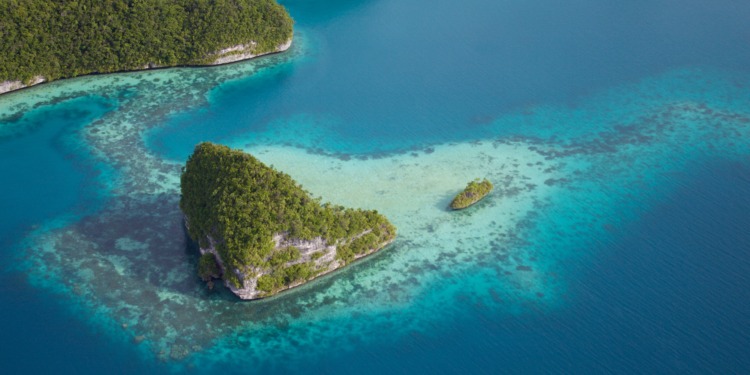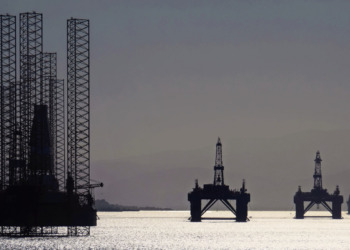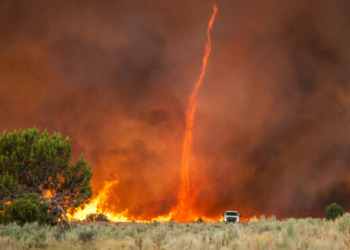The case is officially being brought by the Commission of Small Island States on Climate Change and International Law (Cosis) and will take place over two days, starting on September 11, at the International Tribunal for the Law of the Sea (Itlos) in Hamburg, Germany.
Representing Cosis, Prime Minister Gaston Browne of Antigua and Barbuda and Prime Minister Kausea Natano of Tuvalu provided the evidence to the court, with Natano stating:
“We come here seeking urgent help, in the strong belief that international law is an essential mechanism for correcting the manifest injustice that our people are suffering as a result of climate change.”
The subject being decided will be whether carbon emissions absorbed by the ocean should be considered marine pollution and crucially — what obligations nations have to protect the marine environment.
Small island nations are particularly at risk from the effects of climate change, especially rising sea levels, and could even face being submerged if measures are not taken.
“Today is indeed a historic day… As we seek to get answers to a couple of questions to determine the obligations of states parties,” Prime Minister of Antigua Gaston Browne said following the hearing.
What is the Law of the Sea?
The Law of the Sea is a body of international law that regulates the rights and duties of states in maritime environments and aims to maintain order, productivity and peaceful regulations on the sea. Adopted by the United Nations in 1982, it is considered to be one of the most important international agreements on ocean law and governance.
It sets out a legal framework for the use and management of the world’s oceans and seas, including their resources, environment and navigation.
The court will hear the cases set out by the small island nations, and a ruling is hoped that will set out the obligations of polluting nations towards the health of the world’s oceans.
Why is protecting the oceans so important?
The small island nations making their case, as well as other low-lying islands throughout the world, are at severe risk of becoming submerged if climate change is not brought under control. In a 2019 report by the Intergovernmental Panel on Climate Change (IPCC), this argument is supported by warnings that low-lying islands and coasts face disproportionately higher risks from oceans and cryosphere changes.
There are also several other reasons we need guidelines on keeping our oceans healthy. The health of our oceans directly affects the health of the planet and its inhabitants, providing food, energy, water and industries such as fishing.
Related articles: Island Nations Turn to World’s Highest Court for Climate Justice | What the International Court of Justice’s Upcoming Advisory Opinion Means for Climate Action | Tiny Pacific Island-Country to Become World’s First Digital Nation
The oceans also play a crucial role in regulating the Earth’s climate by absorbing carbon dioxide and heat from the atmosphere. The ocean is a huge carbon sink, absorbing 25% of carbon dioxide emissions and capturing 90% of the heat of the world.
“Sea levels are rising rapidly, threatening to sink our lands below the ocean […] Extreme weather events, which grow in number and intensity with each passing year, are killing our people and destroying our infrastructure. Entire marine and coastal ecosystems are dying in waters that are becoming warmer and more acidic.”
— Kausea Natano, the Prime Minister of Tuvalu.
What next?
Under the current UN convention on the law of the sea, many countries are required to put in place measures to prevent and control pollution.
The case brought by the island nations aims to extend protection to include damage from climate change brought by carbon emissions. If successful, a tribunal will issue an advisory option on legal matters that, while not legally binding, would help guide nations in crafting climate protection laws.
As WWF’s Oceans Practice Lead Pepe Clarke explains: “These hearings represent a significant step toward defining the climate-related obligations of states under the UN Convention on the Law of the Sea.”
Editor’s Note: The opinions expressed here by the authors are their own, not those of Impakter.com — Featured Photo Credit: Pablo_marx.










